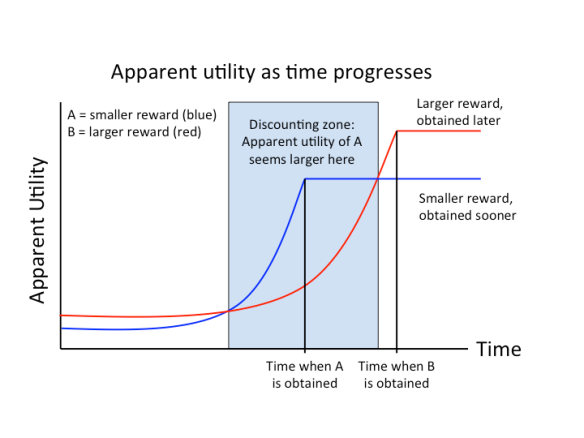关于人脉的逻辑和个人处事的逻辑
发信站: BBS 未名空间站 (Fri Apr 12 14:50:18 2013, 美东)
http://www.qinghetao.com/960.html
有一次在北大讲座,遇到一位学生问我,“老师,你说学习重要,还是经营人脉重要?
”看着他一脸大杂烩的表情,我先拿出本子记下了这个问题,然后告诉他说,这是个比
较大的话题,我会仔细写篇文章放在网上的,然后给了他我的博客地址。而后又补了一
句,“相信我,所谓的人脉就算重要,也根本没他们说的那么重要”。
你愿意与什么样的人成为朋友?
让我们细说从头。先动脑思考一下,你愿意与什么样的人成为朋友?从幼儿园开始,每
个人就都已经有一些选择朋友的原则—尽管并不自知。事实上,资源分布的不均匀,必
然造成人与人之间的某种依附关系。观察一下,就可以看到事实:幼儿园里玩具多的孩
子更容易被其他孩子当作朋友。那么,玩具最多的孩子朋友最多么?答案并非肯定。
如果你像我一样有机会、也恰好愿意多花一点心思与那个玩具最多的孩子交谈的话,你
也很快就会发现,在他的心目中,与所有成年人一样,朋友被划分为“真正的朋友”和
“一般的朋友”。以下我们姑且把那个玩具最多的孩子叫做“小强”
当时我很好奇。耐心等待小强告诉我谁是他“真正的朋友”。最终,他告诉我,真正的
朋友只有两个。其中一个是男孩,另外一个是女孩。那我就问他,“为什么你认为那男
孩是你真正的朋友?”小强一秒钟都没犹豫,告诉我说,“他从来都不抢我的玩具,他
跟我换。”我又问他,“那,为什么你认为那女孩是你真正的朋友?”这次小强犹豫了
好一阵子,在确定我会给他保密之后,磕磕巴巴地说,“她好看。我把新玩具全都先给
她……”我笑。过一会儿又问他,“她觉得你好看么?小强愣了一下,满眼的无辜,“
不知道……”我又问,“那她现在手里的玩具是谁的?”小强突然显得很紧张,“不是
我的。”我决定不去问那小女孩什么问题了。
基于种种原因,生活中总是只有少数人是大多数人想要结交的朋友。但是同样基于种种
原因,大多数人并不知道那些少数的人是如何理解他们大多数人的行为的。刚才小强说
他那个“真正的朋友”从来都不“抢”他的玩具,而是“换”。注意这两个词。
在这里我们不讨论所谓的“心计”。确实有些人有很深的城府,至少比另外一些人更深
,他们可以用常人想不出的,就算想得出来也做不到的手段达到自己的目的。在这里,
我们只讨论最普遍的情况。
所有的人都喜欢并重视甚至偏爱一种交换,“公平交换”。小强也许并没有意识到,他
所拥有的玩具数量,使得他从概率角度出发很难遇到“公平交换”,因为绝大多数孩子
没有多少玩具,甚至干脆没有玩具,所以,那些孩子实际上没有机会,也没有能力与他
进行“公平交换”。对他来讲,不公平的交换,等同于“抢”,没有人喜欢“被抢”。
而与他“换”的那个男孩,让小强感受到公平。小强也有自己想要的但是却不拥有的,
所以,他也去“换”而不会去“抢,”因为他自己就不喜欢“被抢”一一月巴最新的玩
具都给那女孩先玩……
某种意义上,尽管绝大多数人不愿意承认,他们的所谓“友谊”实际上只不过是“交换
关系”。可是,如果自己拥有的资源不够多不够好,那么就更可能变成“索取方”,做
不到“公平交换”,最终成为对方的负担。这样的时候,所谓的“友谊”就会慢・漫无
疾而终。也有持续下去的时候,但更可能是另外一方在耐心等待下一次交换,以便实现
“公平”。电影《教父》里,棺材铺的老板亚美利哥。勃纳瑟拉决心找教父考利昂替他
出气并为自己的女儿讨回公道的时候,亚美利哥就是“索取方”。许多年后,教父考利
昂终干在一个深夜敲开了亚美利哥的门……
所以,可以想象,资源多的人更喜欢,也更可能,与另外一个资源数量同样多或者资源
质量对等的人进行交换。因为,在这种情况下,“公平交易”更容易产生。事实上,生
活里随处可见这样的例子。哪怕在校园里,“交换”本质没有体现的那么明显,但是,
同样性质的行为并不鲜见。比如,某系公认的才子,会与另外一个系里公认的另外一个
才子会“机缘巧合”地邂逅而后成为“死党”。俗话常说,“英雄所见略同”,可能就
是他们一间如故的原因,所以,他们之间的谈话以及任何其他活动往往都会让他们觉得
相互非常“投机”。
这样的例子太多太多。
当15岁的沈南鹏和刊岁的梁建章第一次相识时,这两个惜懂少年不会意识到17年后他俩
会联手创造一个中国互联网产业的奇迹。在1982年第一届全国中学生计算机竞赛上,这
两个数学“神童”同时获奖。
不是因为他们两个要好,才各自变得优秀。而是因为他们各自都很优秀,才可能非常要
好,而后命运的碰撞产生绚丽的火花。
而反过来,这些被公认为优秀的人,事实上往往并不“低调”,也并不“平易近人”。
这并不是他们故意的。他们无意去惹恼身边那些在他们看来“平庸”的人,只不过无形
中他们有这样的体会—“与这些人交流,沟通成本太高……”除非有一天,这些人终于
意识到自己应该保护自己,因为有些误解根本没机会解释。于是,他们开始“谦虚”,
他们学会“低调”,他们显得“平易近人”。
好多年前,我注意到一个现象,当别人求助于我的时候,我内心往往非常抵触,却又怕
别人说我是所谓的“不够意思的人”,于是硬着头皮去做自己不喜欢做的事情。有一次
特别受伤的时候,突然一闪念,想明白,原来这种尴尬本质上并不是来自于我没有“乐
于助人”的品性,而是来自于我自己的精力并不足够旺盛,没有旺盛到处理自己的事情
绰绰有余的同时,还有大把的时间精力用来帮别人做事——事实上,我自己根本己经是
正在过河的泥菩萨。后来,我开始怀疑,雷锋的领导是否太白痴,因为他没有给自己的
下属分配足够的工作。~——这是那天晚上与我来讲非常惊喜的一件事儿,因为我发现
我正在独立思考。
承认自己能力有限,是心理健康的前提。从我重新思考雷锋的领导那天开始,我挣扎着
去学习如何做事量力而行。说起来好笑,自己的智商有限到过去竟然没想到“量力而行
”是如此高难度的行为模式—
1)承认自己能力有限;
2)不怕在别人面前露怯;
3)敢于不去证明自己是“好人”……
只有优秀的人才拥有有效的人脉
所以说,往往只有优秀的人才拥有有效的人脉。并且正因为这些人随时随地都可能要回
避“不公平交换”的企图,他们才更加注重自身的质量,知道不给他人制造麻烦,独善
其身是美德。常言说,“事多故人离”,是非常准确的观察。而那些不优秀的人往往并
不知道这样貌似简单的道理,他们甚至没有意识到自己的状况只能使得自己扮演“索取
者”的角色;进而把自己的每一次“交换”都变成“不公平交换”,最终更可能使交换
落空—因为谁都不喜欢“不公平交换”;每次交换的落空,都进一步造成自己的损失,
使得自己拥有的资源不是数量减少,就是质量下降,进一步使自己更可能沦为“索取者
”一一恶性循环,甚至可能永世不得翻身。
还有些人,过分急于建立所谓的人脉,并全然不顾自己的情况究竟如何。对于这样的人
,人们常用一些专门的词来描述他们,“诌媚”、“巴结”、“欺下媚上”、甚至“结
党营私”等等。这样的人,往往也不是他们故意非要如此的。他们只是朦胧地意识到自
己一个人的力量过于渺小,所以,才希望能够借助其他的力量。而一个人越是渺小,越
是衬得他的欲望无比强烈。这样的人特征非常明显,其中一个就是,在日常生活中他们
经常有意无意地用亲密的方式提及大家仰望的人物,无论他们与“大人物”是否真的存
在私交密往。在中文语境里,他们就会只说名字不说姓氏:李开复不叫“李开复”,在
他们嘴里是“开复”;李彦宏不叫“李彦宏”在他们嘴里是“彦宏”,沈南鹏不叫“沈
南鹏”,在他们嘴里就是“南鹏”;最近我听到更恐怖、更另人毛发惊立的是,“小俞
”(俞敏洪),“小邓”(邓峰),“大想”(理想)……
整体上来看,人脉当然很重要。不过,针对某个个体来说的话,更重要的是他所拥有的
资源。有些资源很难瞬间获得,比如金钱、地位、名誉,尤其在这些资源的获得更多地
依赖出身和运气的现实世界里。然而有些资源却可以很容易从零开始,比如一个人的才
华与学识。才华也好学识也罢,是可以通过努力必然获得的东西。一个人心智能力一旦
正常开启,就会发现自己在这个信息唾手可得的世界里,只要正常地努力,并且有耐心
和时间做朋友,很容易成为至少一个领域的专家。努力并不像传说中的那么艰苦,只不
过是“每天至少专心学习工作六个小时”;耐心却远比大多数人想象得巨大,“要与时
间相伴短则至少五年,长则二十年”
许多年后的今天,我又发现另外一个多年前智商平平的我不可能想明白或者预想到的事
情(当然我现在也依然智商平平,只是多了些智慧):当一个人身边都是优秀的人的时候
,没有人求他帮忙—因为身边这些优秀的人几乎无一例外都以耽误别人的时间为耻,同
时,这些人恰好是因为遇到问题能够解决问题才被认为是优秀的。
如果,终于有一天,你己经成为某个领域的专家,你会惊喜于真正意义上的有价值的所
谓高效的人脉居然会破门而入。你所遇到的人将来自完全不同的层面,来自各种各样意
想不到的不同的方向。而你自己也不再是过去一无是处的你,你不再是“索取者”,你
扮演的是“乐于助人”的角色—很少有人讨厌善意的帮助,更何况你是被找来提供帮助
的呢。
甚至,你会获得意外的帮助。如果你是一个优秀的人、有价值的人,那么就会有很多另
外优秀的人、有价值的人为你提供帮助。这样的时候,这样的帮助往往确实是“无私”
的。正如没有哪个医生做到救死扶伤之后仅仅因为酬劳太少而恼羞成怒的一样,那些品
质优秀到一定地步,境界豁达到一定层次的人,往往真的可以做到“施恩不图报”。因
为对他们来讲,能够有机会“验证自己的想法”本身就己经比什么都重要,并且可以令
他们身心愉悦。然而真正有趣的现象是,被帮助的你也正因为并非寻常之辈,所以一定
懂得“滴水之恩,当以涌泉相报”的道理。最终皆大欢喜,只因为“沟通成本几近于零
”,同时的效果自然是“交流收益相对无穷放大”。良性循环。
打造自己,就等于打造人脉
生活的智慧就在于,集中精力改变那些能够改变的,而把那些不能改变的暂时忽略掉。
专心打造自己,把自己打造成一个优秀的人,一个有用的人,一个独立的人,比什么都
重要。打造自己,就等于打造人脉—如果人脉真的像他们说的那么重要的话。事实上,
我总觉得于人脉导致成功的传说其实非常虚幻,只不过是不明真相的人只好臆造出来的
幻象罢了。
我并不是说,从此就不用关心自己身边的任何人了,或者说从此就无需与任何人打交道
了。善于与人交往也是一种需要学习,并且也需要耗费大量时间实践的技能。我只是提
醒你,别高估自己,误以为自己有那么多足够的时间可以妥善地处理好你与你身边所有
人的关系。浏览一下你的手机通讯簿里的名字吧,有多少己经很久没有联系过了?这么
多年,我只见过两三个人回答我说,“最长时间没联系的,也不超过两个星期。”其中
一个还是特别固执而特殊的人,他的手机通讯簿里,总计才有22个名字。
毕淑敏一次曾提到她自己的一件事:
…我学心理学课程一事,纯属偶然。朋友XX摔断了腰椎骨,打了石膏裤,瘫躺床上三月
。我在自家墙上的挂历上写了一行字:”每周给XX打个电话。”我当医生出身,知道卧
床不起的病人非常寂寞,希望能躺着聊聊天。后来我就按照挂历上的提示,每周都给这
个人打电话,有一句没一句地闲聊。尽管我很忙,还是会多磨成一点时间,让她开心。
后来有一次,她随口说香港中文大学心理学教授林孟平到北师大带学生……我问,我能
跟她学习么?朋友说,那可不知道。后来感谢那位朋友说,我能学心理学,多亏你摔断
了腰。
事实上,真正的关心最终只有一个表现:为之心甘情愿地花费时间,哪怕“浪费”时间
。这也很容易理解。因为,当你把时间花费到一个人身上的时候,相当于在他的身上倾
注了你生命的一段—哪管最终的结果如何,反正,那个人那件事都成了你生命中的一部
分,不管最后你喜欢还是不喜欢。每个人的时间都是有限的。所以最终,“真正的好朋
友”谁都只有几个而己。
这实在是一个大到写两本书都可以的话题。以下是我的几个简单的,但实践起来并不是
那么容易的建议:
1、专心做可以提升自己的事情;
2、学习并拥有更多更好的技能;
3、成为一个值得交往的人;
4、学会独善其身,以不给他人制造麻烦为美德;用你的独立赢得尊重;
5、除非有特殊原因,应该尽量回避那些连在物质生活上都不能独善其身的人;
6、那些精神生活上都不能独善其身的,就更应该回避了—尽管甄别起来比较困难;
7、真正关心一个朋友的意思是说,你情愿在他身上花费甚至浪费更多的时间;
记住,一个人的幸福程度,往往取决于他多大程度上可以脱离对外部世界的依附。
Becoming a diligent person
(part one)

Photo by olga.palma
In the movie Gattaca, Vincent Freeman is an "in-valid," a genetically inferior individual in a society where "valids" are designed to have only the best genes of their parents. Handicapped by myopia and heart problems, Vincent must compete with valids for his dream job of being an astronaut, which requires exceptional intelligence, physical fitness, and (for some reason) typing skills. How does he do this? He studies for long hours at night after his day job. He does pull-ups using his dense astronomy textbooks as weights. He practices typing on a cardboard box. As a result, Vincent is able to at least blend in with his genetically superior peers through sheer effort. (Will he surpass them? Don't ask me—watch the movie.)
The Diligent Individual
This is a familiar story, but it is valuable to look at it more closely. What exactly distinguishes Vincent from other in-valids? On a functional level, he succeeds in consistently putting in extra focused hours. What, then, allows him to do that?
Two things:
- He is highly motivated to achieve his goal. Vincent doesn't kind of want to be an astronaut. He lives to be an astronaut. His entire being is devoted to that singular goal.
- He chooses moment-to-moment actions that work towards his goal. Every night, Vincent has a choice: relaxation or self-improvement. Guess which one he picks.
The difference between Vincent and the average person is that Vincent chooses to work where the average person chooses to procrastinate. This is the only functional difference. Being diligent is only a matter of usually choosing to follow your goals, nothing more. Over time, this will separate the diligent from the ordinary.

Each time you resist procrastination, you become more diligent (Photo by Viktor Hertz)
What does this mean for you?
- The strength of your long-term desires has a huge impact on how consistently you will follow through on them. Don't overlook this simple fact! I find it helpful to constantly remind myself of how much I want to achieve a particular goal and how it will positively affect my future.
- You have the choice, in every moment of your free time, to be a Vincent. It's as simple as that. Every time you decide to go on Facebook instead of working, you bring down your average, taking a step towards mediocrity, whereas every time you decide to put in an extra effort, you move towards diligence. What's more, since humans naturally form habits, each action you take will bias yourself to act similarly in the future.

Photo by Bart Hiddink
But wait, isn't downtime important? Don't people function better with breaks? And isn't life about more than just work?
Yes, yes, and yes. These are all valid claims. But if you're like me, you probably waste a lot more time than you need to, time which you later wish you had spent otherwise. That is the kind of inefficiency that I want to eliminate here.
What's next?
Obviously, there is no fail-safe method to becoming diligent. But by keeping in mind thatevery choice you make matters, you will more often act in accordance with your long-term desires. That is, you will act such that later on you don't regret how you spent your time. And that is the essence of reflective happiness.
(part two)

Photo by jayneandd
In the first part of this post, I laid some basic groundwork for approaching diligence. I emphasized that you have a choice to be diligent or not each time you consider procrastinating, and that your moment-to-moment actions now will affect how you behave in the future. In this part of the post, I'll list three common impediments to diligent goal-accomplishment and some ways to overcome each obstacle.
1. Not enough time or energy
If you're like most people, your everyday schedule is packed. This will probably be true until you retire. If you put something off because you don't have enough time, what you're really saying is that that something is not a priority. That can be okay—you will have more success in what you do if you don't take on too many projects. But make sure you're ready to give up a project completely if you don't have room for it—you shouldn't regret never learning the piano if you are spending your time in a more valuable way. However, if you're not actively pursuing a side project already, chances are you have some spare time lying around.
2. One-time exceptions
Once you've decided that a project is worth your time right now, you may be inclined to make one-time exceptions ("I just had a test today," "I stayed up late last night," "I'm feeling under the weather"). These are the worst enemies for your goal, and they are exceptionally easy to fall prey to. If you've decided that a project is worth your time, then I would beextremely critical of any one-time exception excuses. If you allow even one of these, it opens the door for future excuses, and before you know it, you never go to the gym anymore or you realize it's been two months since you've picked up your new book.

One-time excuses will kill your goals
(Photo by Amy West)
How do you solve this problem? Aside from making a no-exceptions policy, one way to motivate yourself to work towards your goal even when you're not feeling 100% energized and ready to work (itself a rare occurrence) is to leverage several of your desires to make a firmer commitment. Say you want to get into a regular exercise routine. You might do this because you want to be a healthy person. But you also probably want to be the kind of person who exercises—someone who can motivate themselves to follow some regular workout schedule. Here, you're using your desire to be healthy and your desire to be diligent to bully yourself into sticking to your schedule. If you can make a firmer commitment to your goal, you will be more resilient against one-time exceptions.
3. Discounting the value of future goals
People tend to perceive rewards in the present as more valuable than rewards in the future, even when the present reward has a lower actual value. This is a phenomenon known as hyperbolic discounting, and it partly explains why you might go on Facebook now instead of beginning your paper or why you might stay in bed and snooze your alarm instead of getting up on time. Discounting is closely related to one-time exceptions and can be overcome in a similar way. Since people have a natural tendency to give less weight to future consequences, it is important to consciously remind yourself of the future impact of your present actions.

Hyperbolic Discounting (Hyperbolic refers to the shape of your apparent utility curve as time passes--when you are close to realizing a reward, the apparent utility increases rapidly.)
Suppose you have a final paper due in a month. You know it would be bad for your health and your grades if you begin your paper a few days before it is due. However, due to discounting, those consequences are dulled at the moment, paling in comparison to the small entertainment value of playing Draw Something right now. To compensate for this discounting, you can remind yourself of the specific impact your actions in the present will have on your future. If you procrastinate now, you will be really stressed at the end of the semester. If you get a bad grade, you will probably be very unhappy with yourself and you'll have a slightly harder time getting job opportunities in the future. Are you really willing to risk that outcome just to go on Facebook for a few minutes?
Conclusions
It's hard to be diligent, and that's partly because of human nature. Hopefully, by being aware of the specific psychological weaknesses that humans have, you can make a conscious effort to resist them and ultimately succeed in achieving your goals.
The Top 10 Things Successful People Do To Reach Their Dreams
 Our bookshelves are lined with habits that successful people do on a daily basis. We read about them and implement them into our routines and practices. Quite often these practices improve our productivity and make our lives better as a result. But that's not what this article is about. It's not about what successful people do, but what they did.
Our bookshelves are lined with habits that successful people do on a daily basis. We read about them and implement them into our routines and practices. Quite often these practices improve our productivity and make our lives better as a result. But that's not what this article is about. It's not about what successful people do, but what they did.
Here's a brief study of 10 things that these hungry and unstoppable people did to see the success they all eventually achieved.
The 10 Things Successful People Live By Before They Make It
1. They didn't use excuses.
We all have two voices. There's the voice that tells us to work hard, to focus on the task at hand and to finish it before we move on to the next. And to finish it well.
We also have the voice that tells us to take a break, to think about what's on TV, or to visit a site that we like to visit that entertains us – whether it's ESPN.com or facebook.
In life we're the victim of injustice from time to time. It could be a promotion that we deserve but don't get. No matter who we are, we're going to be treated unfairly at some point. We can either feel sorry for ourselves, or push forward and put it behind us – even use it as motivation.
Nelson Mandela could have used his unjust imprisonment as an excuse to give into his anger. Instead, he used it as an opportunity to learn, grow, and eventually free others.
Listen to your excuses. Understand why you have them. Then figure out how you can use them for good.
2. It wasn't just about them.
'Things' can be a motivator, they can even be a reward, but they can't be the motivator. The truly successful in life always get there because they created change in the lives of others, not just their own.
If something drives you that is greater than just the 'ends', we're going to work harder, longer, and we're going to give more of ourselves to our project.
Yes we can make money when we have the primary goal of making money. Some might even use that money for good – which is awesome. But there's no fulfillment in simply making money. And isn't that the point?
3. Early mornings and late nights.
People who have achieved true success in their lives have worked for it.
This might come at the detriment of other areas of their lives, such as family or social life. But their mission is first and foremost. Until it's complete, everything else comes second.
There's literally no substitute for hard work. Abraham Lincoln said, "Things may come to those who wait… but only the things left by those who hustle." If you want to be successful, you're going to have to out hustle everyone else.
4. The greatest commodity.
Energy is a huge commodity that is often not talked about. Yes, energy in the sense of fuel and electricity is talked about everywhere, but I'm talking about our own energy levels.
The fact is that the more energy we have, the easier it is to focus, and the higher the quality of our work is.
One of Richard Branson's 'key's to success' is staying in great physical shape. So would raised energy levels be the greatest benefit to working out? It may be.
Keeping physically fit gives us greater blood-flow to our brain, enhanced alertness and improved focus. Make training a routine part of your life and increase your chances at success – in every meaning of the word.
5. Principles.
History will be kind to me. For I intend to write it.
Winston Churchill had principles. The difference between him and the rest of us, is that he stuck to his principles at all costs. He didn't waver when they weren't popular – an extreme rarity in politics.
What are your principles? All of us should have them, know what they are, and live our lives bythem.
One of Apple's principles is to bring change to the world through technology, and they do it with every product they release.
Identify what principles you have that guide your life through tough times, and when things couldn't be any better. They shouldn't change, and at your core, neither should you.
6. Wavering, yet unbreakable faith.
We all have moments of doubt. Even the best of us question if our dream is going to come true. The one thing that separates the truly successful from those who never reach their true potential is an unbreakable faith in the fact that what they're doing is right.
Even if they have moments of doubt, they're soon quelled, where other's listen to that doubt and let it eat them up and finally they quit.
Have your moments of doubt. You're human. Just don't let that doubt eat you up. Instead let it motivate you to prove your optimism right.
7. A reason.
Many of the greatest accomplishments in the world were accomplished by insecure men and women, people who had something to prove to others. A desire to elevate their status and create change that was so strong, that failure is simply never and option.
Abraham Lincoln's reason(s) had to do a lot with his view of himself in relation to how other's viewed him. Where others saw a poor, illiterate boy, Lincoln saw someone capable of achieving more, even if he had to do it completely on his own. He also saw the need for change. A nation that preached freedom wasn't free. He saw something fundamentally wrong with this and set out to change it. His why wasn't about him. Which in turn made him one of history's great men.
Understand why. You have that reason to work when others sleep, to sacrifice a safe life for a risky one with no ceiling. Find it by asking why, and not stopping until you hit your core, emotional reason for wanting to change your status, or the status of others.
8. They persevered when others didn't.
How does the guy who quit on his dream know how long it would've taken him to become a success? He doesn't. None of us do. It could be tomorrow, or ten years from now.
What separates a lot of the great people we read about in our history books from those we've never heard of is the fact that they never quit. Quitting was never an option. They only stopped when they reached their dream. And even then, they created a new mission.
Take James J. Braddock, or even Nelson Mandela, for example. They didn't achieve their greatness or success early on in their careers or in life like some. They achieved it after surviving. They survived while others literally died, or quit. In their cases it wasn't just that they were the best, but they were the best because of what they endured. They were the last one's standing.
We don't know when our breakthrough will come. So don't guarantee your failure by quitting. You can adapt, change, and evolve, but never, never, never quit.
9. Great people relentlessly studied their craft.
Tony Gwynn and Mike Tyson studied their craft as much as anyone. Gwynn spent hours upon hours studying opposing pitchers. He studied their patterns. He wasn't the most athletic guy around, but he put his work in to be the best at what he did: hit baseballs.
When people think of Tyson, they think of an animal, but what we fail to see is the student. No one studied boxing like Tyson did. Watched more film than anyone in the history of the sport. He was a student first, a fighter second.
These great athletes studied film, but how can we perfect our craft?
Using myself as an example; much of my job has to do with writing, and obviously fitness. So, I study those two things. I read books about how to become a better writer, ways to connect with the reader, and I simply read great books written by authors who are much better at writing than I am. If you're in sales, read and study sales. If you're a marketer, then do the same with marketing.
Being a drone that simply goes through the motions is no way to achieve greatness. Assuming success is something you want, you have to study your craft, whatever it may be. Learn it inside and out. Build a wealth of knowledge. It'll help you create great, inspiring, and unique work.
10. Risk.
No risk, no reward. Yes it's an over-used, cliché of a phrase. But it's true. Those who have achieved real success have often risked the most to get there.
There have been billions of people throughout history who have had the ability to achieve greatness, whether it was the talent or smarts, they had it. What they didn't have was the guts to risk the life that they were living. They also didn't have the work ethic to see their talent realized.
The greatest tragedy in life is wasted talent ~ A Bronx Tale
Your big, audacious dream might be to marry the girl of your dreams and have a family with her. You risk might be to leave the career that you love in order to support her and your family. Your dream might be to help millions live longer, healthier lives. Whatever your dream is, give it enough of a chance to be realized.
Risk if you truly want to see the reward.
